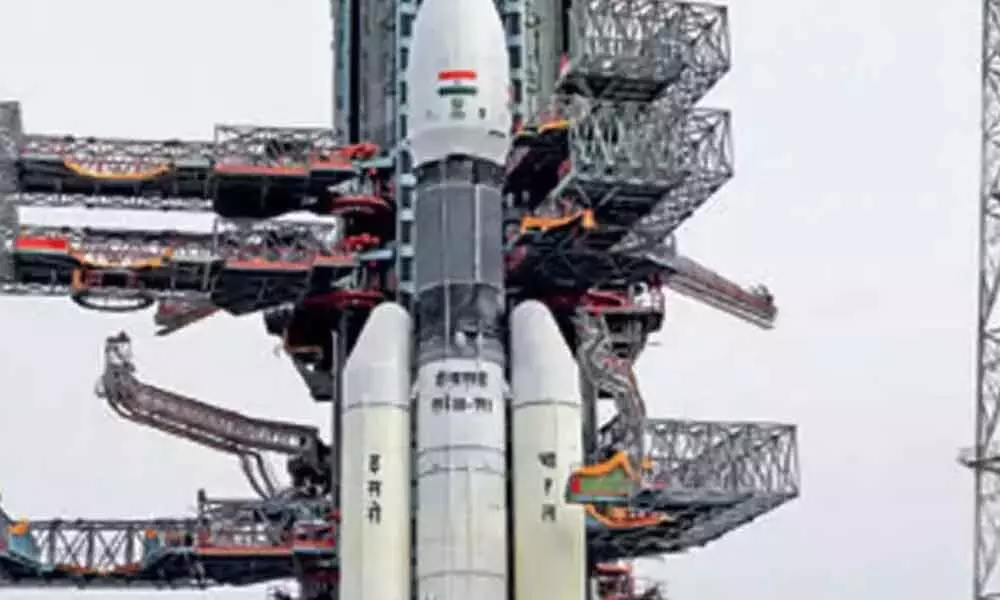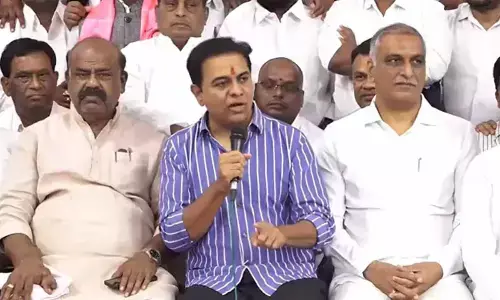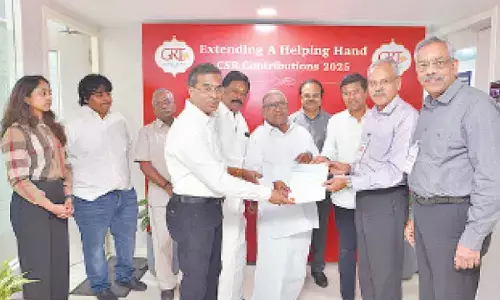Static test of SSLV's first stage solid motor unsuccessful: ISRO

Static test of SSLV’s first stage solid motor unsuccessful: ISRO
Bengaluru: The static test of first stage solid motor (SS1) of ISRO's Small Satellite Launch Vehicle (SSLV) -- a new-generation compact rocket -- was not successful, according to sources in ISRO.
"Oscillation was noticed after 60 seconds into the test and nozzle was blown out near the bucket flange where it's attached with the motor at around 95 seconds", sources in the Bengaluru-headquartered space agency said.
It was supposed to be tested for a total duration of about 110 seconds, officials said.
The Indian Space Research Organisation had targeted to launch the first development flight of SSLV (D1) in April and may now in all probability have to revise this schedule.
"SSLV first stage is a new solid motor...new design.
New motor has to be static tested on the ground to prove its performance. If it is successful, one more of the same configuration is tested again for acceptance. If both are successful, no more ground test is required and third motor of the same configuration will be accepted for flight", an ISRO official said.
SS2 and SS3 motors, igniters and SS2 flex nozzle assembly, liquid propulsion-based VTM (Velocity Trimming Module) thrusters, propellant tanks and propulsion components had already been realised by ISRO and made ready for the maiden orbital test flight.
"We have to identify the root cause of the failure and modify the design", the official said on the unsuccessful testing at Sriharikota spaceport in Nellore district of Andhra Pradesh, about 100 kms north of Chennai, last week.
Asked how long it may take for ISRO to complete the two static tests, the official said: "Maybe six months".
SSLV is two metres in diameter and 34 meters in length with a lift-off weight of about 120 tons. ISRO has over the years realised five generations of launch vehicles -- SLV-3, ASLV, PSLV, GSLV and GSLV-MkIII.
The space agency had earlier said the SSLV was going to be a new member of the launch vehicle family. It is intended to cater to emerging global small satellite launch service market.
"We are flying an earth observation satellite (EOS-02) on board the first development flight of SSLV," ISRO Chairman and Secretary in the Department of Space, K Sivan said last month. SSLV has been designed to meet "launch on demand" requirements in a cost-effective manner for small satellites in a dedicated and ride share mode.
It is a three-stage all solid vehicle with a capability to launch up to 500 kg satellite mass into 500 km low earth orbit (LEO) and 300 kg to Sun Synchronous Orbit (SSO).
By comparison, PSLV -- the workhorse of ISRO -- can take up to 1,750 kg payload into SSO of 600 km altitude. With lower per kg launch cost, the mini launcher will have multiple satellite mounting options for nano, micro and small satellites. Sivan had earlier termed the SSLV an innovative vehicle, which can be assembled in just 72 hours.
"Instead of 60 days (for building a PSLV), it (SSLV) will be assembled in three days; instead of 600 people (needed to build a PSLV), it (SSLV) will be done by six people," he had said. Chairman and Managing Director of ISRO's commercial arm, NewSpace India Limited (NSIL), G Narayanan, recently said: "the world over there is a big boom for small launch vehicles and that's why we are focusing on that."
The US-based satellite ride share and mission management provider, Spaceflight Inc., has already purchased the first commercial launch of the SSLV (SSLV-D2) from NSIL for launch from the Satish Dhawan Space Centre in Sriharikota.

















